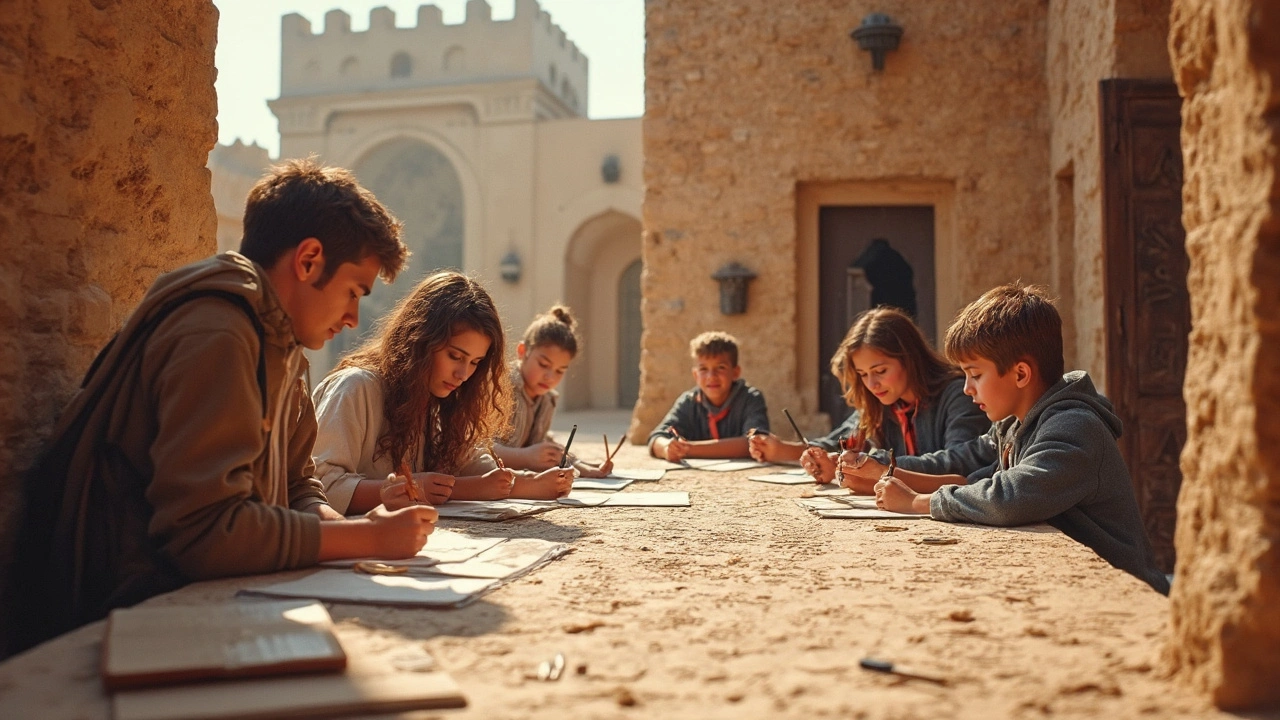Education in Dubai: Your Quick Start Guide
Thinking about moving to Dubai or sending your kids there? The city’s education scene can feel huge, but you don’t need a PhD to figure it out. Below you’ll find straight‑forward advice on primary schools, high schools, and universities, plus a few hacks to save time and money.
Primary & Secondary Schools – What’s on the Table?
Dubai offers three main types of schools: public, private and international. Public schools follow the UAE Ministry of Education curriculum and are free for Emirati citizens. Expats usually go for private or international schools because they teach in English and follow British, American, Indian or IB programmes.
Here’s a quick way to narrow your list:
- Curriculum: Want a British GCSE route? Look for schools with the “British School” tag. Need an American high school diploma? Search for CBSE‑aligned or US‑based schools.
- Fees: Expect AED 15,000‑30,000 per year for a solid Indian curriculum school, and AED 30,000‑70,000 for top‑tier British or IB schools. Some elite schools charge over AED 100,000.
- Location: Pick a school near your workplace or a metro line to cut the commute. Traffic in Dubai can turn a 10‑minute ride into a half‑hour mess.
- Facilities: Look for air‑conditioned classrooms, sports fields, and after‑school clubs—most families consider these essential.
Enrollment usually opens in January for the September start. Have your child’s passport, vaccination record, and the most recent school report ready. Some schools also ask for a small “application fee” (about AED 500) to lock in your spot.
Higher Education & Universities – Options for Young Adults
Dubai’s university landscape has grown fast. You can study at home‑grown institutions like the University of Dubai or branch campuses of world‑renowned schools such as Heriot‑Watt, University of Manchester, and Northwestern.
Key things to check before you commit:
- Accreditation: Make sure the program is recognized by the UAE Ministry of Education and, if you plan to work abroad, by the relevant foreign body.
- Program length: Most bachelor’s degrees run three to four years. Some engineering and medicine tracks can be longer, so confirm the exact timeline.
- Cost: Tuition ranges from AED 30,000‑60,000 per year for local universities, up to AED 100,000+ for premium international branches.
- Scholarships: Look for merit‑based offers, especially if you have strong grades or sports talent. The Dubai Academic Credit Transfer System (DACTS) also lets you move credits between institutions, saving time and money.
Applying is usually a two‑step process: first, submit an online application with your transcripts and English test scores (IELTS/TOEFL). Second, attend an interview—many schools do this via Zoom, which is handy for expats still abroad.
Once you’re accepted, you’ll need a student visa. The university often handles the paperwork, but you’ll still need a valid passport, proof of funds (about AED 15,000 for the first year), and health insurance.
For working students, Dubai’s part‑time work permit lets you earn up to AED 2,000 a month. This can help cover living costs, especially if you share an apartment with roommates.
Ready to start? Make a shortlist, contact the admissions offices, and set up virtual tours. Most schools will send you a brochure, fee schedule, and a calendar of upcoming open days. Grab those dates, ask about transport options, and you’ll be on your way to a smooth transition.
Whether you’re scouting primary schools for your kids or picking a university for yourself, Dubai’s education options are diverse and flexible. Keep the core factors—curriculum, cost, location, and accreditation—in mind, and you’ll cut through the noise fast. Good luck, and enjoy the vibrant mix of cultures that makes learning in Dubai so unique!
